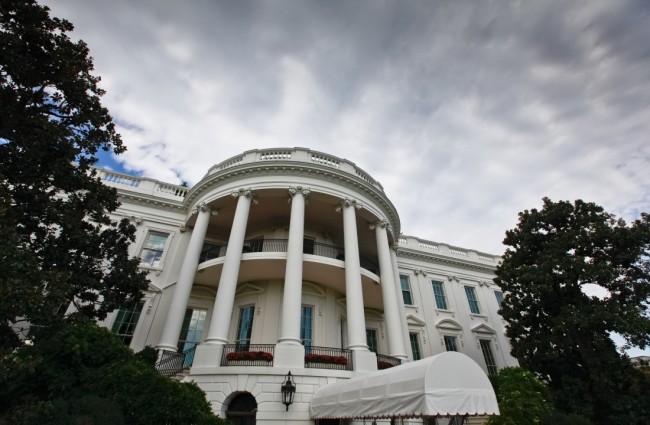-
 Read more
Read moreIn 2011, a group of executives left Horizon Health Corporation for a competitor, Acadia, but they didn’t leave everything behind. Horizon’s president took a “massive, massive amount” of Horizon documents with him on an external hard drive. And despite provisions in their contracts prohibiting them from soliciting Horizon’s employees, the executives recruited a key member of Horizon’s sales team, John Piechocki, who copied lists of sales leads and added them to his new company’s “master contact list.”
-
 Read more
Read moreFederal employment law protects against a number of different types of discrimination, including treating employees differently because of age, gender, or race.
More and more often, employees bring discrimination claims based on harassment, rather than (or in addition to) claims based on employer decisions that appear to be discriminatory.
However, an employee can only bring a harassment claim under federal law if the employer has engaged in "discriminatory intimidation, ridicule, and insult" that was "sufficiently severe or pervasive to alter the conditions of the victim's employment and create an abusive working environment." See Harris v. Forklift Systems, Inc., 510 U.S. 17 (1993).
-
 Read more
Read moreAn employee without an employment contract is typically deemed to be an at-will employee. In an at-will employment relationship, the employer has the right to terminate the employee for any reason permitted by law, with or without cause.
Moreover, when employers write their employee handbooks, they frequently adopt strong language describing this at-will employment structure and warning employees of this termination right. But sometimes even this handbook language isn’t enough to protect an employer from a claim that an employee is exempt from termination without good cause.
That’s exactly what happened to Barnes & Noble in Oakes v. Barnes & Noble College Booksellers, LLC, a recent decision from the California Court of Appeal.
-
 Read more
Read moreFederal law—specifically, Title VII of the Civil Rights Act of 1964—prohibits employers from discriminating against employees based on a number of protected characteristics, including sex, race, national origin, and religion.
One major open question, however, is whether Title VII prohibits employers from discriminating based on sexual orientation. For example, if a job candidate is openly gay, can the employee refuse to hire that person because of his sexual orientation without violating federal law?
The Supreme Court has never spoken on the issue.
-
 Read more
Read moreIn our last post, we detailed how Sanford Wadler, the former general counsel of Bio-Rad Laboratories, won a $14.5 million verdict against Bio-Rad.
Before Wadler could get to a jury, however, he had to surmount a significant hurdle: Bio-Rad asked the judge to exclude any testimony based on information Wadler learned in his role as in-house counsel. Bio-Rad relied on an attorney’s ethical duty to protect client confidences unless the client is threatening criminal activity that could lead to death or serious bodily harm.
-
 Read more
Read moreCompanies entrust their in-house attorneys with sensitive and confidential information in order to obtain legal advice on important matters. Thus, when an in-house attorney turns on his or her employer, the repercussions can be significant.
In a recent case involving just this situation, a jury awarded Sanford Wadler, the former general counsel for Bio-Rad Laboratories, an $8 million verdict for wrongful termination. The jury found that Wadler raised concerns about violations of the Foreign Corrupt Practices Act (FCPA) at Bio-Rad, and that the company violated the Sarbanes-Oxley Act and California public policy when it terminated him after he raised those concerns.
-
 Read more
Read moreThe board of directors controls a corporation, but individual directors don’t always agree on the future direction of the company. Sometimes, boards can split into factions. A company’s CEO may align himself with one side and oppose the other.
In rarer circumstances, these disagreements can develop into corporate gridlock. This happens when the warring factions on a board are equally divided.
What can a court do to fix this situation?
-
 Read more
Read moreAs a new administration arrives in the nation’s capital amid heightened scrutiny over conflicts between government service and personal business interests, a little-used law—the Stop Trading on Congressional Knowledge Act (the “STOCK Act”)—is deservedly getting renewed attention.
Although enacted in 2012 primarily to eliminate the then-existing doubt that insider trading prohibitions applied to congressional members and their staff, the STOCK Act also explicitly confirmed the ban on insider trading by members of the executive (and judicial) branch as well.
-
 Read more
Read moreSergey Aleynikov, a former computer programmer at Goldman, Sachs & Co., has been on a legal roller coaster for the past few years. In the span of few days, that roller coaster plummeted steeply—twice.
First, on January 20, 2017, the Delaware Supreme Court affirmed a trial court decision that Aleynikov could not recover advancement and indemnification for the legal expenses he is incurring in defending himself against counterclaims brought by two Goldman Sachs entities in New Jersey federal court.
Then, on January 24, a New York appellate court reinstated a jury verdict finding Aleynikov guilty of misappropriating computer code from Goldman.
-
 Read more
Read moreIf you're an employee and you work more than 40 hours a week, you typically have the right to receive time-and-a-half overtime pay for those extra hours.
But there's a significant exception to this rule: it does not apply to white-collar workers, such as executives. As summarized on the Department of Labor's website, to be considered a white-collar worker and thus exempt from the overtime requirement, you have to be paid a salary and not by the hour; you have to make more than $455 per week; and you have to work in a certain kind of job, such as a managerial or professional role.
As the regulatory and business environments in which our clients operate grow increasingly complex, we identify and offer perspectives on significant legal developments affecting businesses, organizations, and individuals. Each post aims to address timely issues and trends by evaluating impactful decisions, sharing observations of key enforcement changes, or distilling best practices drawn from experience. InsightZS also features personal interest pieces about the impact of our legal work in our communities and about associate life at Zuckerman Spaeder.
Information provided on InsightZS should not be considered legal advice and expressed views are those of the authors alone. Readers should seek specific legal guidance before acting in any particular circumstance.
Contributing Editors

John J. Connolly
Partner
Email | +1 410.949.1149

Andrew N. Goldfarb
Partner
Email | +1 202.778.1822

Sara Alpert Lawson
Partner
Email | +1 410.949.1181

Nicholas M. DiCarlo
Associate
Email | +1 202.778.1835




